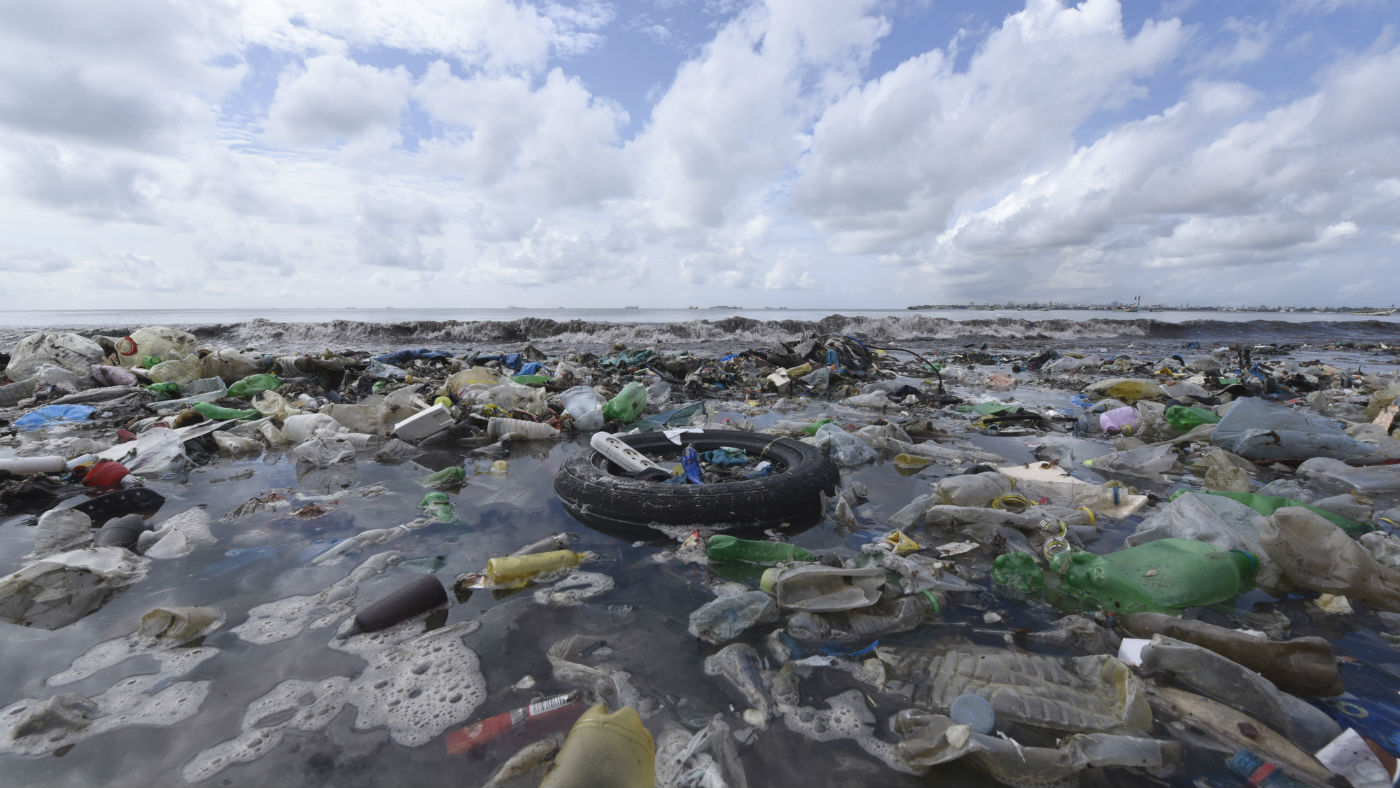Ocean plastic to treble within 10 years
Plastic estimated to outweigh all the fish in the sea by 2050

A free daily email with the biggest news stories of the day – and the best features from TheWeek.com
You are now subscribed
Your newsletter sign-up was successful
The amount of plastic littering the world’s oceans is expected to triple in less than a decade unless drastic measures are taken to deal with the problem, government scientists have warned.
The Foresight Future of the Sea report from the UK Government Office for Science says plastic is one of the biggest threats facing the world’s oceans, along with rising seas level, warming waters and metal and chemical pollution.
At least 70% of marine litter is non-degradable plastic and is projected to increase threefold between 2015 and 2025, according to the report.
The Week
Escape your echo chamber. Get the facts behind the news, plus analysis from multiple perspectives.

Sign up for The Week's Free Newsletters
From our morning news briefing to a weekly Good News Newsletter, get the best of The Week delivered directly to your inbox.
From our morning news briefing to a weekly Good News Newsletter, get the best of The Week delivered directly to your inbox.
The UK economy relies heavily on oceans, with 95% of trade travelling by sea, and experts say the Government needs to be more strategic in its approach in order to successfully halt some of the long-term pollution issues.
The report’s authors suggest efforts to reduce plastic pollution should focus on preventing it entering the sea, introducing new biodegradable plastics and public awareness campaigns about marine protection.
CNN says the issue of plastic pollution has become “a notorious environmental subject over the last several years” as researchers and activists have revealed it accumulating in areas of the sea and along once pristine coastlines.
The World Economic Forum claims around 150 million tonnes of plastic is already floating in the world’s oceans and it is estimated there will be more plastic than fish in the sea by weight by 2050 if current rates of plastic dumping hold.
A free daily email with the biggest news stories of the day – and the best features from TheWeek.com
A plastic garbage island floating in the middle of the Pacific is estimated to cover one million square miles, roughly the same size as Mexico.
But the international community is slowing waking up to the problem. Last year, 193 countries signed a UN resolution pledging to eliminate plastic pollution at sea.
-
 Why is the Trump administration talking about ‘Western civilization’?
Why is the Trump administration talking about ‘Western civilization’?Talking Points Rubio says Europe, US bonded by religion and ancestry
-
 Quentin Deranque: a student’s death energizes the French far right
Quentin Deranque: a student’s death energizes the French far rightIN THE SPOTLIGHT Reactions to the violent killing of an ultraconservative activist offer a glimpse at the culture wars roiling France ahead of next year’s elections
-
 Secured vs. unsecured loans: how do they differ and which is better?
Secured vs. unsecured loans: how do they differ and which is better?the explainer They are distinguished by the level of risk and the inclusion of collateral
-
 Epstein files topple law CEO, roil UK government
Epstein files topple law CEO, roil UK governmentSpeed Read Peter Mandelson, Britain’s former ambassador to the US, is caught up in the scandal
-
 Iran and US prepare to meet after skirmishes
Iran and US prepare to meet after skirmishesSpeed Read The incident comes amid heightened tensions in the Middle East
-
 Israel retrieves final hostage’s body from Gaza
Israel retrieves final hostage’s body from GazaSpeed Read The 24-year-old police officer was killed during the initial Hamas attack
-
 China’s Xi targets top general in growing purge
China’s Xi targets top general in growing purgeSpeed Read Zhang Youxia is being investigated over ‘grave violations’ of the law
-
 Panama and Canada are negotiating over a crucial copper mine
Panama and Canada are negotiating over a crucial copper mineIn the Spotlight Panama is set to make a final decision on the mine this summer
-
 Why Greenland’s natural resources are nearly impossible to mine
Why Greenland’s natural resources are nearly impossible to mineThe Explainer The country’s natural landscape makes the task extremely difficult
-
 Iran cuts internet as protests escalate
Iran cuts internet as protests escalateSpeed Reada Government buildings across the country have been set on fire
-
 US nabs ‘shadow’ tanker claimed by Russia
US nabs ‘shadow’ tanker claimed by RussiaSpeed Read The ship was one of two vessels seized by the US military